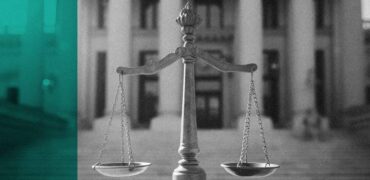Ambush marketing is considered to be the attempt to associate a brand with a major media event in order to benefit, in a parasitic way, from the latter’s visibility and media impact. The brand associates itself without having any official or direct connection to the event itself, and especially without incurring the related costs needed in order to become the official sponsor of the event.
In fact, these are activities that interfere with the usual contractual relations between the organizers and the official sponsors (sponsorship contract, license or similar) and generate the belief, to the public, that the promoting company (ambusher) is somehow related to the event itself, thus reducing the recognition of the actual sponsor.
As the literal meaning of the verb to ambush may suggest, the ambusher aims to create an unpleasant action against a sponsor company (often its direct competitor) in order to increase the visibility of its own brand at the expense of a competing brand. Among the best-known examples of ambush marketing, we mention the advertising campaign created by Nike during the Olympic Games in Atlanta in 1996.
On that occasion, Nike managed to disrupt its rival Reebok, official sponsor of the event. This campaign, among other initiatives, included high-impact billboards on the perimeter walls of the sports facilities and the installation of temporary stores near the facilities as well, implicitly letting the public understand that Nike was one of the sponsors of the event. Moreover, although not an official sponsor of the event, Nike managed to gain high visibility as a technical sponsor of many successful athletes: one of the most famous photos of the Atlanta Olympics shows Michael Johnson wearing, besides the two gold medals won during the Games, the Nike shoes (which were gold, by the way) used during the sports competition as well.
The activities included in the phenomenon of ambush marketing are multiple, the most important being:
- predatory ambushing – when a brand deceptively presents itself as an official sponsor of the event, referring to the event’s brands and signs;
- coat-tail ambushing – when a brand uses strategies aimed at interfering with an event, through indirect references (for example: distributing free tickets, gadgets or clothing, sponsoring individual athletes or teams);
- insurgent ambush – when the surprise marketing initiatives take place near or within an event (such as, for example, a publicity plane flying over the event);
- saturation ambush – represents the intensification of the competitor’s promotional activities in order to saturate all the advertising spaces left free by the official sponsor (for example: the massive posting of posters near the event or the purchase of advertising spaces on the radio and television channels broadcasting it).
In Romania, until now, there is no express legislation that sanctions this kind of practice, there are only general rules that might applicable. In fact, under national law it is rather considered as unfair competition, as it aims to increase the notoriety of the ambusher, creating damages to the brand that is in indeed the official sponsor and who has invested considerable sums in this regard. Specifically, the phenomenon is regulated by Directive 2005/29/EC on unfair commercial practices, by Directive 2006/114/EC on misleading advertising and comparative advertising and by the corresponding legislation on unfair competition and unfair commercial practices.
In other states such as Italy there is an express regulation which sanctions ambush marketing. Thus, in preparation for the Winter Olympic Games in Milan – Cortina d’Ampezzo, the legislator adopted Law no. 31/2020 of May 13, 2020, intended to combat ambush marketing. Law no. 31/2020 sanctions specifically:
- creating a link, even indirect, between a brand or another distinctive sign and one of the sporting events envisaged by the Italian legislator (the Olympic and Paralympic Games from 2026, respectively the ATP finals in Turin from 2021-2025), of such a nature that misleads the public as to the identity of official sponsors;
- falsely stating or representing in its own advertising that an entity is an official sponsor of the sporting event;
- promoting the brand or its distinctive sign through any activity that was not authorized by the organizer that is likely to attract public attention. This promotion is carried out in the context of one of the sports events referred to, and likely to generate a mistaken public perception that the person organizing the activity is a sponsor of the sporting event;
- the sale or use for sale of products or services with an illegally used brand, even if partially, with a sports event logo or other distinctive signs likely to mislead the public about the logo itself or to create the wrong impression of any connection with this event, the event organizer or the entities authorized by the organizer.
We believe that such express regulation of ambush marketing would be appropriate in national legislation in order to protect large-scale events and to prevent such practices. It should also be borne in mind that modern ambush marketing activities will be conducted mostly online and with extreme speed.
Currently, ambush marketing activities that take place online are often countered by using the notice and takedown procedures provided by the platforms. These procedures although effective are not always sufficient to put an end to these actions.
At Costaș, Negru & Asociații, in the framework of the practice areas Media Law, Sports Law and Intellectual Property, we are carefully following the evolution of this trend, which is also growing in our country, and especially what the national legislator’s attitude towards ambush marketing will be. Despite the legislative void, our lawyers are well prepared to deal with such matters.
This article was written for the Costaș, Negru & Asociații’s Blog by Ms. Sara Borghesi, a lawyer with Arad Bar Association.
Costaș, Negru & Asociații is a lawyers’ civil partnership with offices in Cluj-Napoca, Bucharest and Arad, providing legal assistance, representation and consultancy in a number of practice areas with a team composed of 13 lawyers and consultants. Details regarding legal services and the members of the team can be found on the website https://www.costas-negru.ro. All rights for the materials published on the company’s website and on social media belong to Costaș, Negru & Asociații, their reproduction being allowed only for information purposes and with the correct and complete disclosure of the source.













